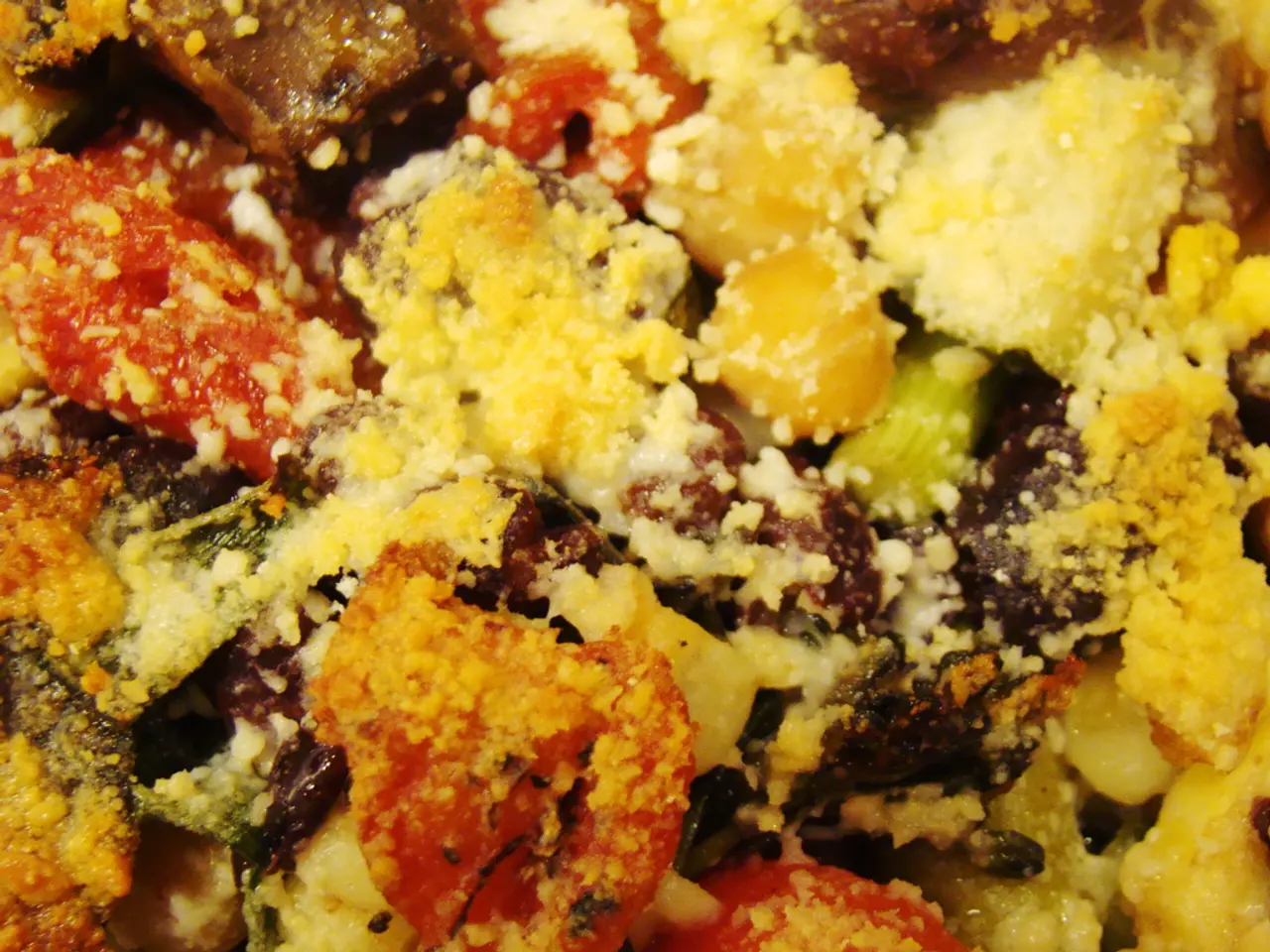Engineered microbes may aid in the combat of excessive weight gain.
Let's dive into a groundbreaking study that's shaking up the weight loss world. Researchers over at Vanderbilt University have created a probiotic wonder- yes, a probiotic! This cleverly engineered strain of E. coli produces a natural appetite-suppressing molecule known as *NAPE* (N-acyl-phosphatidylethanolamine).
In a series of tests on mice, this engineered probiotic cut weight gain by an impressive 15%, all while their high-fat diet remained unchanged. That's right, no calorie counting or metabolism manipulation here! So, how does it work?
NAPE is a molecule naturally produced by our small intestine after consuming food, especially fats. It gets converted into another compound that signals satiety to the brain, letting it know we've had enough to eat. But here's the catch- obese individuals often don't produce enough of this molecule. Without this signal, the body doesn't get the message to stop eating.
Enter our friendly probiotic! By programming E. coli to produce NAPE right within the gut, these researchers created a living, replicating delivery system for appetite control. Imagine that! No more pills every day; a once-in-a-while probiotic reboot might do the trick instead.
After the mice stopped drinking the bacteria-infused water, the appetite-suppressing effects lingered for four to six weeks. This indicates that the modified microbes took up residence in the gut, hanging around without the need for frequent doses. Now that's efficient!
It reminds us of a revolutionary gut-based intervention that could potentially replace our daily pills. It's a whole new approach to weight management, moving us away from traditional pharmacology towards gut engineering. Could we be saying goodbye to obsessive calorie counting and hello to a microbial upgrade?
Turning Bacteria into Satiety Messengers
Since obese individuals often struggle to produce enough NAPE, scientists got a brilliant idea. They decided to let bacteria do the talking instead! By genetically engineering E. coli to manufacture NAPE in the gut, they created a living, replicating communication system for appetite control.
Over an eight-week period, mice that drank water with the engineered probiotic revealed some fascinating findings:
- Reduced weight gain by 15%
- Lower food intake
- Decreased body fat
- Protection from obesity-related diseases like type 2 diabetes and fatty liver
But wait, there's more! The bacteria didn't just pass through. It seems the gut welcomed them, allowing their effects to persist for weeks without further dosing.
"This isn't a drug. It's a microbial upgrade," says lead researcher, Dr. Sean Davis, a pharmacologist at Vanderbilt.
The Future of Weight Loss: From Pills to Probiotics
We've been brainwashed into believing that weight loss requires constant maintenance, but what if the future looks more like gut engineering and less like traditional pharmacology? What if instead of overpowering biology, we work with it?
This probiotic research flips the script. Instead of bombarding our bodies with drugs and hoping they reach the right place, this method puts the compound exactly where it needs to be-at the interface between food and metabolism-the gut lining.
It's a game-changer because:
- Orally delivered NAPE doesn't work: It breaks down during digestion and never reaches the small intestine intact.
- Injected NAPE might work, but it requires multiple doses a day, and comes with cost, inconvenience, and compliance issues.
- Microbial delivery bypasses both problems: Using living bacteria to secret the compound precisely where it's needed.
"We actually needed much less NAPE delivered by bacteria than through injection," Davis explained. "That's likely because the bacteria are right where NAPE acts-close to the gut lining."
From Mice to Humans
While the mouse studies are promising, it's important to remember that mice are not humans. Human gut ecosystems are a whole different story. Dr. Charles Elson, a gastroenterologist at the University of Alabama Medical School, points out that creating therapeutic bacteria and getting them to stay is no walk in the park.
"The resident organisms in the gut will fight them off. Establishing a stable population is very difficult," he told MIT Technology Review.
Indeed, your gut microbiome thinks of itself as a territorial neighborhood full of long-time residents who don't take kindly to newcomers. For designer probiotics to work long-term, they'll need to integrate-or at least carve out a niche without causing unwanted disruption.
Welcome to the brave new world of weight loss! Food for thought and probiotics galore!
The study at Vanderbilt University, involving engineered E. coli producing appetite-suppressing molecules, represents a significant leap in health-and-wellness and fitness-and-exercise research. The molecule, NAPE, can potentially mitigate medical-conditions related to chronic-diseases like obesity, type 2 diabetes, and fatty liver, all while reducing weight gain and consumption of food.
Moreover, this revolutionary approach demonstrates the potential for technology and artificial-intelligence to intertwine with science and medicine, as seen in the engineering of E. coli bacteria for medical use. This innovative solution, when compared to traditional pharmacology, showcases the use of gadgets like probiotics as a more efficient and less intrusive health intervention.
On the subject of nutrition, it's crucial to consider the future implications of this study. If modified bacteria can produce vital compounds, it could transform how we perceive and approach health and wellness. Furthermore, by working with our bodies' natural mechanisms instead of overpowering them, we may be on the verge of a new era where technologies and advancements in understanding the gut help us manage chronic diseases in unique and promising ways.






